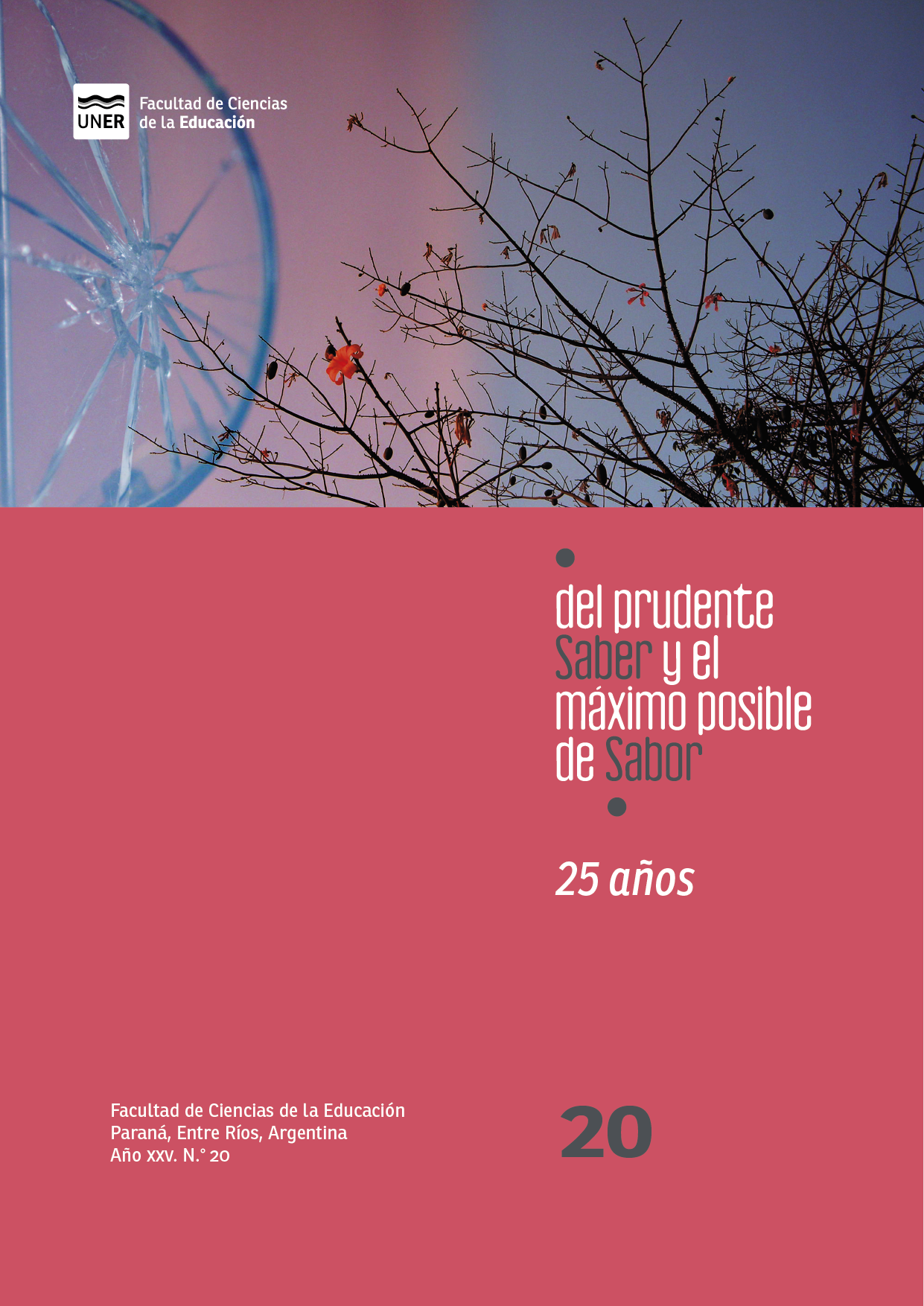Fat and Mud: Cosmopolitical Art(i)-Facts-Effects of Food, Memories and Shelters
Main Article Content
Abstract
Based on the artistic practices developed in Argentina by the collectives Viento Negro (Río Gallegos, Santa Cruz, Patagonia Austral) and Caudillas del Barro (Victoria, Entre Ríos, Litoral del Río Paraná), we will reflect on the fat and mud —which these same collectives summon— as cosmopolitical art(i)-facts-effects, materialities in flight from modern binomials; trans-species-things assemblages.
Fat and mud, and the practices they involve, will in turn be constellated from the mechera epistemology (one that flees from academic capture, an undisciplined one). If the mecheras are women who collect food and clothing for collective survival in times of economic and social crisis; The mecheras of contemporary arts (and their epistemology) displace the materials and languages, the corporalities that define the artistic object towards aesthetic-political disputes, creating possibilities of joint existence.
This reflexive proposal will be analyzed by seeking artifacts/effects of food, memories and shelters, in order to update the ways of producing knowledge and community, reaffirming vitalities.
Downloads
Article Details

This work is licensed under a Creative Commons Attribution-NonCommercial-ShareAlike 4.0 International License.
Las ediciones no tienen cargos para las y los autores ni para las y los lectores, y se incita a las y los autores a depositar sus contribuciones en otros repositorios institucionales y temáticos, con la certeza de que la cultura y el conocimiento son un bien de todos y para todos. DPS permite la reutilización luego de su edición (Post print) citando la autoría y la fuente original de su publicación. Su uso no puede ser con fines comerciales.
References
Barad, K. (2023). Performatividad posthumanista: hacia una comprensión de cómo la materia entra en materia. Cuadernos materialistas, 8, 66-92.
Bennet, J. (2022). Materia vibrante. Una ecología política de las cosas. Caja Negra.
Butler, J. (1998). Actos performativos y constitución del género: un ensayo sobre fenomenología y teoría feminista. Debate Feminista, 18, 296-314.
Corvalán, K. (2022a). Curadurías del fin del mundo. 5 casos de curaduría afectiva. Autoras en tienda.
Corvalán, K. (2022b). Texto curatorial de la Muestra «Barrial. Proyecto cerámico y performático en el territorio» de Marisa Núñez Caminos. Museo Provincial de Bellas Artes «Dr.Pedro E. Martínez», Secretaría de Cultura, Gobierno de Entre Ríos.
Corvalán, K. (2020). Curadurías inestables: todo patrimonio es molesto. En: Elbirt, A .L. y Muñoz, J. I. (Comps.). Los patrimonios son políticos: patrimonios y políticas culturales en clave de género. Ministerio de Cultura de la Nación, Museo Therry Tilcara.
Corvalán, K. y Medrano, C. (2023). Epistemología mechera. Estrategias de resistencia, reexistencia y deseo desde el litoral en el Arte Contemporario Argentino. Cariño ediciones.
Deleuze, G. (1987). La imagen-tiempo. Estudios sobre cine 2. Paidós comunicación.
Despret, V. (2022). Habitar como un pájaro. Modos de hacer y de pensar los territorios. Cactus.
Dos Santos Montangie, A., Robledo, E., Rodrigues Lopes, G., Sarra, S., Mansilla, V. Varela, M. Porsella, R. Medrano, C. y Tola, F. (2023). Devenir objeto, devenir sujeto. Materialidades sensibles en la etnografía amerindia. Chungara Revista de Antropología Chilena, 55(2), 393-407.
Espejo Ayca, E. (2023). Yanak Uywaña, la crianza mutua de las artes. Imperfectas Fordistas.
Haraway, D. (1995). Ciencia, cyborgs y mujeres. La invención de la naturaleza. Cátedra.
Latour, B. (2014). ¿El cosmos de quién? ¿Qué cosmopolítica?: Comentarios sobre los términos de paz de Ülrich Beck. Revista Pléyades, 14, 43-59.
Le Guin, U. K. (2022). La teoría de la bolsa de la ficción. Rara Avis.
Perón, E. (2019). Mi mensaje. Ediciones del País.
Preciado, P. (2019). Un apartamento en Urano, crónicas del cruce. Editorial Las Martas.
Stengers, I. (2017). La propuesta cosmopolítica. Revista Pléyades, 14, 17-41.
Taylor, D. (2017). ¡Presente! La política de la presencia. Investigación Teatral, 8(12), 11-34.
Taylor, D. (2009). Performance e historia. Apuntes De Teatro, 131, 105-123.
Viveiros de Castro, E. (2006). A floresta de cristal: notas sobre a ontologia dos espíritos amazônicos. Cadernos de campo, 14/15, 319-338.

